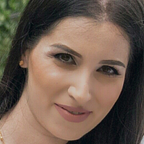Quantum Computing and Machine Learning
Recently Quantum Computing is a hot topic and everybody wants to jump on it. Especially Machine Learning such NLP or AI are most discussed areas.
What is quantum AI?
Quantum AI is the use of quantum computing for computation of machine learning algorithms. Thanks to computational advantages of quantum computing, quantum AI can help achieve results that are not possible to achieve with classical computers.
What is quantum computing?
Quantum mechanics is a universal model based on different principles than those observed in daily life. A quantum model of data is needed to process data with quantum computing. Hybrid quantum-classical models are also necessary in quantum computing for error correction and correct functioning of the quantum computer.
Although AI has made rapid progress over the past decade, it has not yet overcome technological limitations. With the unique features of quantum computing, obstacles to achieve AGI (Artificial General Intelligence) can be eliminated. Quantum computing can be used for the rapid training of machine learning models and to create optimized algorithms. An optimized and stable AI provided by quantum computing can complete years of analysis in a short time and lead to advances in technology. Neuromorphic cognitive models, adaptive machine learning, or reasoning under uncertainty are some fundamental challenges of today’s AI. Quantum AI is one of the most likely solutions for next-generation AI.
How does quantum AI work?
Recently, Google announced TensorFlow Quantum(TFQ): an open-source library for quantum machine learning, in collaboration with the University of Waterloo, X, and Volkswagen. The aim of TFQ is to provide the necessary tools to control and model natural or artificial quantum systems. TFQ is an example of a suite of tools that combines quantum modeling and machine learning techniques.
- Convert quantum data to the quantum dataset: Quantum data can be represented as a multi-dimensional array of numbers which is called as quantum tensors. TensorFlow processes these tensors in order to represent create a dataset for further use.
- Choose quantum neural network models: Based on the knowledge of the quantum data structure, quantum neural network models are selected. The aim is to perform quantum processing in order to extract information hidden in an entangled state.
- Sample or Average: Measurement of quantum states extracts classical information in the form of samples from the classical distribution. The values are obtained from the quantum state itself. TFQ provides methods for averaging over several runs involving steps (1) and (2).
- Evaluate a classical neural networks model — Since quantum data is now converted into classical data, deep learning techniques are used to learn the correlation between data.
The other steps of evaluating cost function, gradients, and updating parameters are classical steps of deep learning. These steps make sure that an effective model is created for unsupervised tasks.
How to apply quantum computing in AI?
Researchers’ near term realistic aim for quantum AI is to create quantum algorithms that perform better than classical algorithms and put them into practice.
- Quantum algorithms for learning: Development of quantum algorithms for quantum generalizations of classical learning models. It can provide possible speed-ups or other improvements in the deep learning training process. The contribution of quantum computing to classical machine learning can be achieved by quickly presenting the optimal solution set of the weights of artificial neural networks.
- Quantum algorithms for decision problems: Classical decision problems are formulated in terms of decision trees. A method to reach the set of solutions is by creating branches from certain points. However, when each problem is too complex to be solved by constantly dividing it into two, the efficiency of this method decreases. Quantum algorithms based on Hamiltonian time evolution can solve problems represented by a number of decision trees faster than random walks.
- Quantum search: Most search algorithms are designed for classical computing. Classical computing outperforms humans in search problems. On the other hand, Lov Grover provided his Grover algorithm and stated that quantum computers can solve this problem even faster than classical computers. AI-powered by quantum computing can be promising for near term applications such as encryption.
- Quantum game theory: Classical game theory is a process of modeling that is widely used in AI applications. The extension of this theory to the quantum field is the quantum game theory. It can be a promising tool for overcoming critical problems in quantum communication and the implementation of quantum artificial intelligence.
Although quantum AI is an immature technology, there are improvements in quantum computing which increase the potential of quantum AI. However, the quantum AI industry needs critical milestones in order to become a more mature technology.
